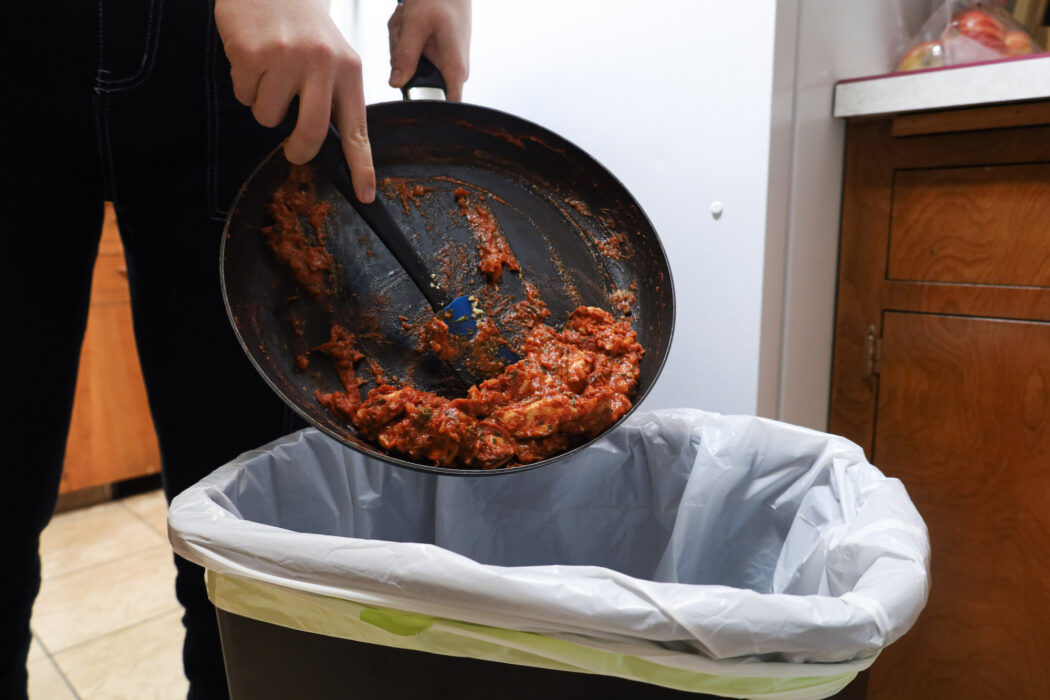The downside to all that food on Thanksgiving
Thanksgiving is the start of holiday festivities for many people. However, fun and festive as that feast can be, it is accompanied by some issues that are oftentimes overlooked.
Food waste happens year-round, but times like Thanksgiving generate even more waste.
According to the National Resources Defense Council, 200 million pounds of turkey go to waste every Thanksgiving.
In addition to the wasted turkey, the Center for Biological Diversity reports 150 million pounds of side dishes and 14 million pounds of dinner rolls are also thrown out during the holiday.
Stacy Bevan, professional practice associate professor in the Department of Nutrition, Dietetics and Food Sciences at Utah State University, said we see additional food waste in November that we wouldn’t see at other times of the year.
Bevan suggested several ways students and people can prevent food waste in their homes. She said a big part of prevention is planning what to make ahead of time, and determining what foods people might have at home that can be incorporated in what they are making.
Meal planning and preparation for meals such as Thanksgiving helps reduce the potential of wasting a large amount of food.
Bevan said everyone should think about how many people they are going to cook for, so no one overestimates the amount of food they need to buy.
“Savethefood.com is a super user-friendly website that allows you to pick the foods that you’re going to serve, and then it estimates how much you would need to buy to prepare the appropriate amount for that many people,” Bevan said.
Meal planning and preparation for meals such as Thanksgiving helps reduce the potential of wasting a large amount of food.
Meghan Adair, a USU dietetics student, said the opportunity to do research on food waste has been super eye-opening to her.
“Food waste can be tough for college students because this is generally their first experience away from home. For many, they are still learning how to meal plan, grocery shop, and cook effectively. These skills are important to prevent food waste,” Adair wrote in an email exchange with The Statesman.
Adair did point out that college students aren’t the only ones who produce more food waste during this time.
“As a general whole, there will definitely be an increase in food waste around this time. I challenge all college students to do their part in preventing food waste by taking leftovers home,” Adair wrote.
Bevan also suggested considering using Thanksgiving leftovers later in the week in different meals to prevent any waste.
Katie Fairbourn, one of the co-directors of the Student Nutrition Access Center at USU, said she is really passionate about food insecurity and education on subjects related to food waste.
“We just would eat leftovers for the whole weekend, so we wouldn’t ever really have food waste,” Fairbourn said when talking about what her family did to prevent Thanksgiving food waste. “But I can see it being a huge problem that people didn’t grow up with leftovers and things like that.”
Adair said Thanksgiving leftovers are inevitable, as people typically make too much food.
“Knowing how to repurpose those leftovers following the big feast is what is key,” Adair wrote.
-Kate.Stewart@usu.edu
Featured photo by Kate Smith

